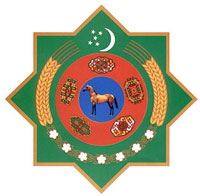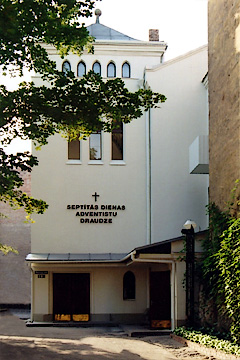Call them Number One--officially, Number 0001, the registration number granted Seventh-day Adventists in this central Asian nation on June 1, making them the first Protestant Christian congregation to gain such status in Turkmenistan.
Five years after it bulldozed a Seventh-day Adventist Church building, the government of Turkmenistan has officially recognized the small group of believers remaining. Adventists are the first Protestant congregation to be registered by the country's Ministry of Justice, church leaders say. At present, there are 60 Adventists in Turkmenistan.
"There is nothing impossible for God," declared Pastor Rubin Ott, president of the Adventist Church in the region, reacting to the turn of events.
Paul Fedotov, pastor of the Adventist Church in Turkmenistan, says that now members have full right to hold meetings. Although the legal address of the church is in his apartment, members have permission to meet in other places.
The new move by the government is a welcome change from its earlier stance. In November of 1999, a bulldozer began the demolition of a Seventh-day Adventist Church in Ashkhabad. According to a former foreign minister, the president of Turkmenistan, Saparmurat Niyazov, gave the order to have the church destroyed.
On May 13 a presidential decree stated that "the practice of unauthorized religious activities" would be decriminalized. This supplemented a March 11, 2004 decree that dropped the number of adherents in a religious community required for registration from 500 to 50. Some had hoped that the May 13 decree would result in the legalization of Shia Muslim, Baptist, Baha'i, Pentecostal, Armenian Apostolic, Lutheran, Hare Krishna, Jehovah's Witness and Jewish religious activities. Until the June 1 registration of the Seventh-day Adventist Church, only the state-regulated Sunni Muslim (89%) and the Russian Orthodox Church (9%) were granted limited legal status in Turkmenistan. The clergy of the two state-regulated religions were put on the state payroll.
Dr. John Graz, director of the Public Affairs and Religious Liberty Department of the Seventh-day Adventist Church, said the registration decision was "very good news" for Christians and others in the country.
"It shows that international connections play a very important role in the improvement of religious freedom in Turkmenistan," he said in an interview with the Adventist Press Service (APD). "Now, we want to be sure that it will be really implemented, and the follow-up work from our side will be serious. We also say to the authorities that they should not have any concern about the loyalty of religious minorities such as the Baptists and Adventists, which are not involved in politics."The change in Turkmenistan policy comes less than a week after the United States Commission on International Religious Freedom (USCIRF) called for designation of Turkmenistan as a "country of particular concern" by the U.S. Department of State.
"The Commission believes that Turkmenistan should be designated a 'country of particular concern' (CPC) for its egregious violations of religious freedom," said USCIRF Chair Michael K. Young in a May 28, 2004 news release. "... CPC designation would likely lead to significant improvements for the religious communities in Turkmenistan who have been ignored by the outside world for too long."
Human rights observers voice the opinion that because of such international concerns, the Turkmenistan government has changed its outlook and practices.
The country of Turkmenistan proclaimed its independence from the former Soviet Union (USSR) in October 1991. President Niyazov has held power since that time and on Dec. 28, 1999, was approved by the The Mejlis, the National Assembly, as president for life. Niyazov is also Chairman of the Cabinet of Ministers and Chairman of the Democratic Party of Turkmenistan (DPT). [Mark A. Kellner and Christian B. Schaeffler for ANN/APD]


